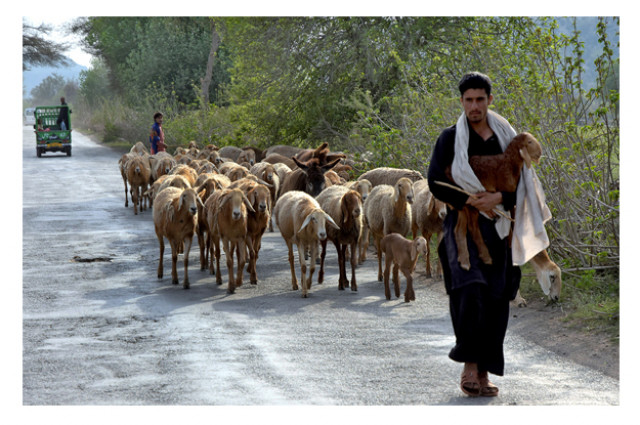The salt of Khewra’s earth
Victims of government apathy, residents get relief with clinic set up by soda ash manufacturer

PHOTO: APP
“This is the salt city,” says a shopkeeper with a casual wave of his hand. “The salt is in the air, in the earth and in the water. There is salt everywhere,” he adds with a wry smile.
Khewra houses tonnes of salt reservoirs, making Pakistan the second largest producer in the world. It helps the government earn billion of rupees in foreign exchange through salt exports. And yet, living conditions for thousands of locals are no less than appalling. “This is not just a depiction of the government’s failure. It is tantamount to rubbing salt on our wounds,” says Muhammad Rasib, a native of the nearby Wara Buland Khan village, with unmistakable irony. “We may have been the happiest people in the world had these salt mines been located in any other country.”
The Khewra salt mines are also a popular destination for international tourists. Every year, thousands of people visit the famous Khewra museum, which shows the happiest face of the salt city. The structures made of rock salt offer a breathtaking view.
Less than two kilometres from the museum is the Civil Hospital, the lone government health facility. Hundreds of patients sit unattended in the filthy corridors while stray animals move around freely. The foul smell makes it impossible for an outsider to stand there for more than a moment or two.
Colorful banners inscribed with slogans of ‘Parha Likha Punjab’ and ‘Sehatmand Punjab’ are miles away from Khewra, whose residents have no access to these much-trumpeted schemes of the prime minister’s party, Pakistan Muslim League-Nawaz, in the province. Locals say illiteracy, unemployment and explosive growth in population are long-standing problems which have never been addressed. The health sector, though, is the worst off, with thousands of people suffering from hypertension, diabetes, malnutrition, anaemia and strokes.
Now, however, there is some hope for ailing residents of Khewra – no thanks to the government.
Just behind Civil Hospital is a modern clinic recently established by the largest soda ash manufacturer of the country, ICI Pakistan, under its corporate social responsibility. The company, which fulfills up to 80% of the country’s demand for soda ash, has already launched community welfare schemes prior to the clinic. These include providing filtered drinking water and building playgrounds and a school in the subdivision, where ICI Pakistan has a large soda ash plant.
Set up by the group’s sister concern, the ICI Foundation, in collaboration with the Marie Adelaide Leprosy Centre (MALC), the clinic provides health facilities to women and children. Manned by a qualified doctor and paramedical staff, it has an out-patient department, laboratory and a well-equipped ambulance for emergencies.
“Residents had to travel to Lahore and Rawalpindi for normal treatments,” says Dr Lala Rukh, the head of Hamqadam Community Clinic. Explaining maternity-related problems in the city, she adds most deliveries were handled by unprofessional midwives at home, resulting in additional health problems. The doctor hopes local women will now be able to get better healthcare at the clinic.
In contrast, the government’s apathy can be gauged by the fact that none of its health officials in the city attended the clinic’s inaugural ceremony earlier this month.
Fareeda Begum, a mother of three visiting the clinic, is delighted to have a decent health facility just five minutes from her residence. Begum says she cannot help thinking how far they had to commute to find a hospital in Lahore or Rawalpindi. “This fills a great void in the community, as women and children had to travel great distances for quality healthcare.”
ICI Pakistan’s Chief Executive Officer Asif Jooma says the health facility was set up with an initial investment of Rs7 million and is run and managed by the MALC, Karachi. “Pivotal health starts from mother and child. If the mother is healthy, the whole family will be healthy.”
Published in The Express Tribune, March 14th, 2016.


















COMMENTS
Comments are moderated and generally will be posted if they are on-topic and not abusive.
For more information, please see our Comments FAQ